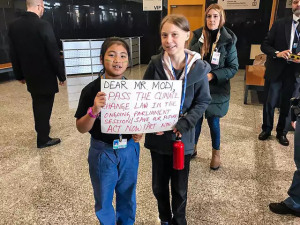Fake Coronavirus Cures and Conspiracies Are Quickly Spreading Online
Online platforms might be too slow to stop the spread of fake Coronavirus cures and conspiracy theories.


Anna Shvets / Pexels
The coronavirus outbreak is escalating, with many countries now stepping up their efforts to contain it. This has gone as far as closing down schools and banning mass gatherings in severely affected countries. However, for some the virus isn't a cause for concern, it's an opportunity to make some quick money.
As supplies have run low due to panic buying, many people have turned to re-selling face masks and hand sanitizer at an incredibly inflated price. Worse though are the fake cures and conspiracy theories spreading around the web.
There is no cure for coronavirus that you can buy online. Governments have been attempting to spread actionable information about how to minimize the risk of catching the virus. However, when so many people get their news entirely online, misinformation spreads fast. Fake cures and conspiracy theories have become widespread, and some companies like Google have been to slow to combat them.
Coronavirus' Fake Cures and Causes
The fake cures being spread around online for coronavirus vary quite widely, as do the theories about the virus' origin. These are some of the major fake cures and stories spreading about the virus:
Oregano Oil
Oregano is a key spice for a lot of different dishes, but it is not a medicine. A post about this oil being a miracle cure for the virus has gone viral and likely deceived plenty of people into purchasing it.
Generic Kaletra
This is a drug that is licensed for the treatment of HIV. Although if you believe this eBay listing, it comes in a variety that stops coronavirus. This is particular listing has found its way through the automatic blocks by relegating the coronavirus mention to a type of the product and instructing customers to purchase it on a dodgy website.
Some Nationalities Are Immune
A post from a website called Cityscrollz circulated claimed people from African backgrounds were genetically resistant to coronavirus. This was of course, false. It has been spread considerably further than information of this quality should have though.
Staying Away from 5G
A conspiracy theory that has taken off is that coronavirus is being caused by 5G technology. There are already plenty of conspiracy theories about Chinese 5G companies, so this is an extension of those. This is misleading people about the dangers to their health and encouraging people to ignore the actual risks of contracting the virus.
5G causes coronavirus because it’s sucking the oxygen out of your lungs, according to a video being spread on Facebook. I want to ? but the fact people believe this bullshit is genuinely scary pic.twitter.com/kY3g5MJtu9
— Tom Warren (@tomwarren) March 3, 2020
Misinformation Can Be Dangerous
Misinformation spreads online all the time. When it comes to health scares and contagious diseases though, spreading fake news becomes a major public health concern. Misleading people about what they can do to prevent the spread will lead to them not taking proper precautions and putting them at risk.
What's Being Done to Stop the Misinformation?
Platforms like Facebook, Google, and Twitter have promised action to stop the misinformation flowing. However, their track record for tackling misinformation doesn't look great.
? We’re stepping up internal & external efforts to protect the public conversation & help people find authoritative health information on #Coronavirus / Covid-19. https://t.co/sajbTsOCmV
— Twitter Public Policy (@Policy) March 4, 2020
Amazon and eBay have proved quite effective at dealing with the listings for cures. Few can be found on there at the moment, although there are some like the one mentioned above that go above and beyond to circumvent the filters. Both companies have said they're now focusing on cutting down on sellers charging high prices for masks and hand sanitizer.
YouTube is also proving effective at taking down content. As well as deleting the offending material, they are providing prominent links to the latest information from trusted sources directly below videos mentioning coronavirus. While each video can't be checked manually, this is a great counterweight to any misinformation that slips through the gaps. Twitter is helping boosting helpful and accurate information but isn't doing well at stopping the spread of misinformation.
Google and Facebook haven't had as much luck. Despite promising to remove ads for cures, they can still be found on the services if you match the target demographic and use the right search terms.
As public fear of the virus escalates, it's likely more misinformation is going to spread. Online platforms are reacting quickly to solve the problem, but some are once again showing the dangers of getting all news from social media.
More News

Apple's fully autonomous car is ready to hit the market
Some of the main features are already known.

Funniest Deepfakes We've Seen
Deepfakes are taking over.

The Real Reason Instagram's Next Update Will Hide Likes
Here's a hint: it has nothing to do with our mental health.

Why has Twitter Deactivated an 8-Year-Old Climate Activist?
Licypriya Kangujam goes viral, rejects name 'Indian Greta Thunberg', and gets shut down in record time.

5 Coronavirus Updates That Will Give You Hope
Amidst rising case numbers there's still some positive news.
